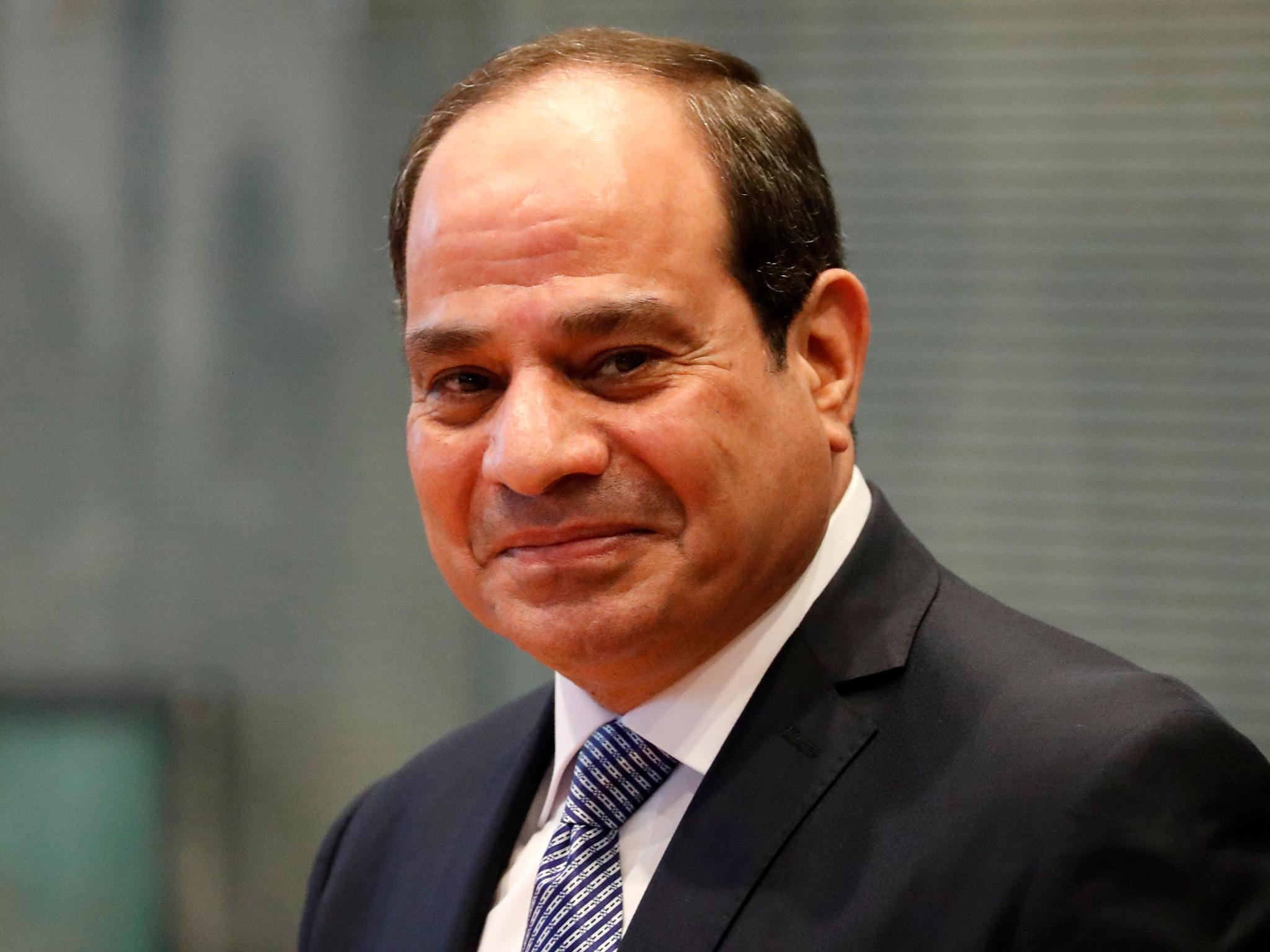Egypt now ‘an oasis of security and stability’, claims Sisi amid clampdown on protesters
Several members of Muslim Brotherhood in detention accused of plotting demonstrations

Your support helps us to tell the story
From reproductive rights to climate change to Big Tech, The Independent is on the ground when the story is developing. Whether it's investigating the financials of Elon Musk's pro-Trump PAC or producing our latest documentary, 'The A Word', which shines a light on the American women fighting for reproductive rights, we know how important it is to parse out the facts from the messaging.
At such a critical moment in US history, we need reporters on the ground. Your donation allows us to keep sending journalists to speak to both sides of the story.
The Independent is trusted by Americans across the entire political spectrum. And unlike many other quality news outlets, we choose not to lock Americans out of our reporting and analysis with paywalls. We believe quality journalism should be available to everyone, paid for by those who can afford it.
Your support makes all the difference.Egypt’s president Abdel Fattah el-Sisi has said the country has become “an oasis of security and stability” under his rule, amid reports of a new clampdown on dissent in the lead-up to the eighth anniversary of the 2011 pro-democracy Arab Spring uprising.
Mr Sisi, who became president in 2014, spoke at the annual ceremony celebrating Police Day, which falls on 25 January, the same date that thousands of Egyptians took to the streets to begin a sweeping revolt that forced longtime dictator Hosni Mubarak to step down in 2011.
Meanwhile, human rights activists have complained that authorities are randomly stopping people in downtown Cairo, the epicentre of the 2011 uprising, for fear that similar demonstrations could erupt.
“The whole world has seen how Egypt has turned into an oasis of security and stability in only a few years,” Mr Sisi told a large audience of government officials, religious leaders and commanders in the country’s security force in the lavish auditorium of Egypt’s police academy in eastern Cairo.
“I will always value and take pride in the fact that you and your fellows in the armed forces are facing a fierce battle against dark terrorism,” he said.
In 2013, Mr Sisi, then defence minister, led the military’s overthrow of Mohamed Morsi, an elected but divisive president who hailed from the ranks of the Muslim Brotherhood. The nation’s oldest and largest Islamist organisation was outlawed and branded a terrorist group the same year. Since then, Mr Sisi’s government has been battling an Islamic insurgency, mainly in the Sinai Peninsula.
Last autumn thousands were arrested, including prominent academics, journalists and politicians following rare protests that erupted on 20 September following corruption allegations levelled by a self-exiled businessman against the president and his military. Hundreds were subsequently released.
On Wednesday, the interior ministry issued a statement alleging that the outlawed Muslim Brotherhood was plotting to “spread chaos” and “undermine the country’s stability” by using cyberspace to call for protests and rioting on 25 January. The statement said authorities had arrested members of the Muslim Brotherhood and discovered several weapon caches. Plotters were coordinating their efforts with fugitive militants who reside in Turkey, the statement added.
In recent weeks, there have been calls on social media to take to the streets on Saturday to protest Mr Sisi’s rule. More than the usual number of police vehicles have been been seen in and near downtown Cairo since last week.
“Downtown Cairo has turned into a military barrack. It is full of secret police who would stop anyone,” said Mohamed Zaree, a human rights activist with the Cairo Institute for Human Rights Studies. He said police were checking the smart phones of those arrested for any possible incendiary political content.
“What is going on definitely has to do with the upcoming anniversary of the 25 January revolution,” said Mr Zaree. “The regime is always scared that the 25 January scenario might get repeated.”
Since Mr Sisi’s ascent to power, state officials and state-controlled media have spread the narrative that the 2011 uprising was the outcome of a conspiracy by the Brotherhood and its regional allies, namely Turkey and Qatar. His government even renamed the 25 January national holiday as Police Day instead of The Revolution Day, in a move widely seen by the regime’s critics as an attempt to erase the memory of that day.
However, in his Thursday speech, Mr Sisi hailed the anniversary of the 2011 pro-democracy rallies as a “precious occasion”.
“Today coincides with the anniversary of the 25 January revolution with its noble demands that the Egyptian citizen would lead a dignified life,” he said.
Associated Press
Join our commenting forum
Join thought-provoking conversations, follow other Independent readers and see their replies
Comments